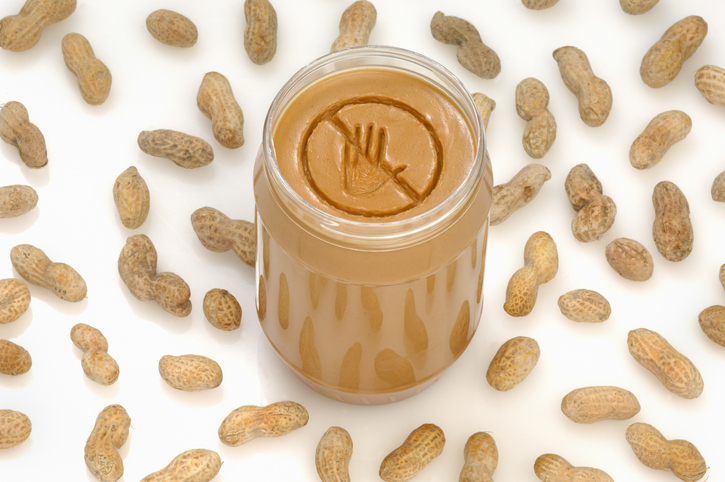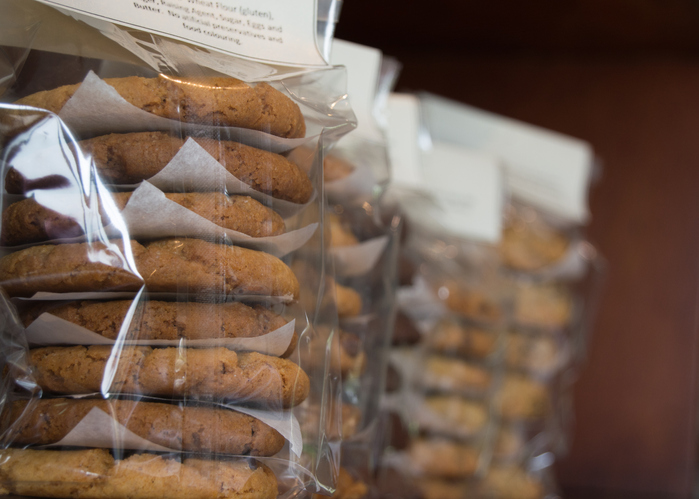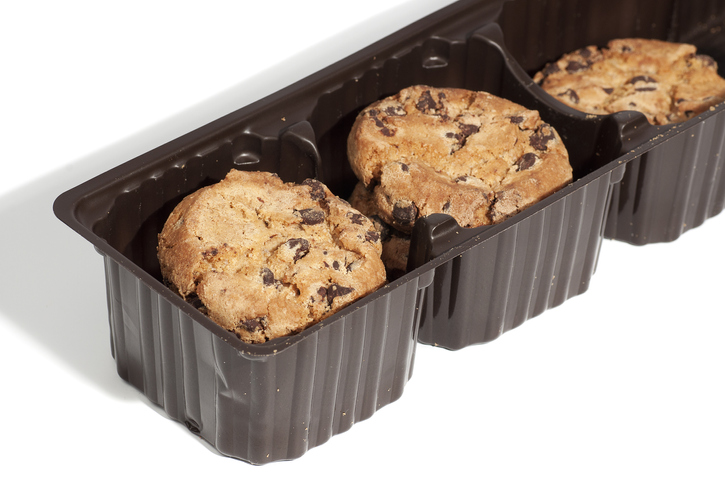Should People with Food Allergies Avoid Store-Bought Cookies?

By Joy Stephenson-Laws, JD, Founder
I can imagine that being the parent of a child with a food allergy, especially a severe one, would be stressful. You have to be hypervigilant when the child is young and then teach your child to be the same as they get older and navigate the world on their own.
(The Prebiotic in Breast Milk May Prevent Allergies in Children)
Mislabeled products.Many people with food allergies depend on food labels, however, it’s discouraging to learn that people have died from mislabeled products. In recent news, a 25-year-old dancer named Órla Baxendale died of anaphylactic shock after consuming cookies from Stew Leonard's, a local grocer with stores in Connecticut, New Jersey and New York. The young dancer had a severe nut allergy. Although she was very proactive about her allergy by always carrying an epipen and checking food labels, the label for the cookies responsible for this tragedy failed to list that they did in fact contain peanuts.
(Boy With Milk Allergy Dies From Eating Chocolate. Learn How To Be Proactive)
It is important to know that in this particular case, which you can read all about here, these cookies were repackaged (and, therefore, finally labeled) by Stew Leonard’s after receiving the cookies from wholesaler Cookies United. CEO Stew Leonard Jr. claims that they were not told that the cookies from Cookies United switched their ingredients from soy nuts to peanuts. Meanwhile, a representative from Cookies United says that this is false and that Stew Leonard’s is responsible for the death of this young woman. Cookies United claims that Stew Leonard’s was informed of the peanuts in the cookies and that Cookies United’s labels listed peanuts as an ingredient.

(Worried about when to introduce your baby to peanuts? New guidelines say earlier may be better!)
"This product is sold under the Stew Leonard's brand and repackaged at their facilities. The incorrect label was created by, and applied to, their product by Stew Leonard's," according to a statement from Cookies United.
This is a huge mess, to say the least. It is also terrifying. After learning about this tragedy, I then began to wonder if this has happened before specifically with mislabeled cookies. Turns out, it has.
Back in 2014, an 11-year-old boy with an allergy died, also of anaphylactic shock, after eating a cookie from a baker counter at a local Publix in Clarksville, Tennessee. The family of the little boy filed a wrongful death lawsuit.
“At a bakery counter that displayed ready-to-eat desserts such as cookies, brownies, pastries and muffins, there were no signs at or behind-the-counter warning of allergens or cross-contamination with allergens, the lawsuit said,” according to a report from USA Today.
“No label on the cookie disclosed the presence of allergens or a list of ingredients, the lawsuit said.”
Should people with food allergies avoid store bought cookies and other baked goods?
Stories such as these make me wonder - should people with food allergies avoid store bought cookies and baked goods due to the potential of mislabeling? Particularly ones that are more artisanal and not Big Food products?

Big Food products come from multinational food and beverage companies, (National Institutes of Health (NIH)). So, Big Food cookies and baked goods you are probably more likely to find on the shelf at the grocery store. And then your more artisanal or ‘mom and pop’ brands you are more likely to discover at a farmer’s market, bakery counter or a smaller, local grocer such as Stew Leonard’s. It is also very important to be extremely careful at events such as school bake sales.
I’m not an expert in food allergy safety, but I suspect that the repackaging and relabeling process that may occur with smaller brands can pose a greater risk for people with food allergies. This isn’t to say that Big Food products are completely free of risk. Big Food products also tend to be ultra-processed, which is usually not good for our overall health and wellness.

“Big Food is a driving force behind the global rise in consumption of sugar-sweetened beverages (SSBs) and processed foods enriched in salt, sugar, and fat. Increasing consumption of Big Food's products tracks closely with rising levels of obesity and diabetes,” (NIH).
A study of peanut cross-contamination in randomly selected baked goods reveals how proactive people with food allergies really need to be. Baked goods were sampled from bakeries, “that sold a variety of ethnic cuisines,” in New York and Miami.
“Of 154 samples from 18 bakeries, 4 (2.6%) had detectable peanut contamination with peanut protein levels ranging from 0.1 mg/100 g to 650 mg/100 g. Consumption estimates for single occasion ingestion of a contaminated item ranged from 0.07 mg to 832 mg of peanut protein.”
Furthermore, “In this study, unintended peanut protein was present in a small, but not insignificant, proportion of baked goods, with the potential to trigger a reaction in individuals with peanut allergy. Some products contained high levels of unintended peanut protein. The current data support the potential for accidental exposure to peanut protein with its associated risk.”
I would avoid artisanal and ‘mom and pop’ cookies and baked goods if I had a food allergy. I would also avoid Big Food products as much as possible whether or not I had a food allergy, because, as mentioned, ultra-processed and processed foods contribute to the development of obesity, diabetes and other serious health issues.
In no way am I saying that the deaths of these young, innocent people were their fault or the fault of their parents. It’s incredibly devastating, but I think we have to really acknowledge when events such as these happen and assess what foods are worth consuming when we can’t always depend on labeling and food safety. You can also be proactive by occasionally. baking your own cookies at home from scratch. I know this is more work, but it may be more satisfying. There are also many healthier, allergy friendly recipes that you can find online. Just make sure that you do not have a seed allergy, as some of these recipes do contain seeds. Be sure to check the recipe very carefully and make sure it does not contain anything that would trigger your specific allergy.
Food allergies are very personal, and some or more severe than others. As always, speak with a competent healthcare professional about how you can best manage you or your child’s food allergy.
I also highly recommend taking a pH GI Effects test in order to identify inflammation, food intolerances, allergies and more.
Enjoy your healthy life!
Disclaimer: This article is not intended to provide medical advice. Please consult with your doctor or another competent healthcare practitioner to get specific medical advice for your situation.
The pH professional healthcare team includes recognized experts from a variety of healthcare and related disciplines, including physicians, attorneys, nutritionists, nurses, and certified fitness instructors. This team also includes the members of the pH Medical Advisory Board, which constantly monitors all pH programs, products, and services. To learn more about the pH Medical Advisory Board, click here.







